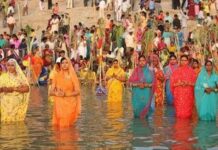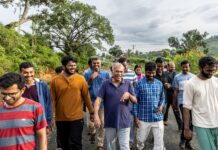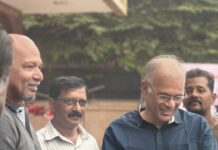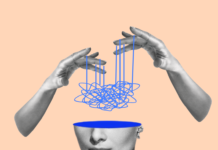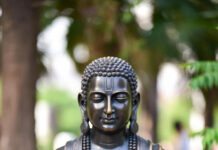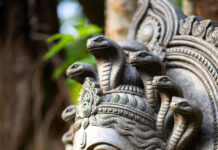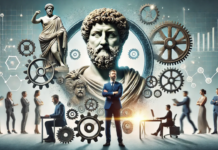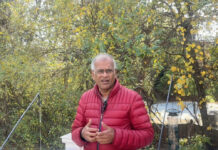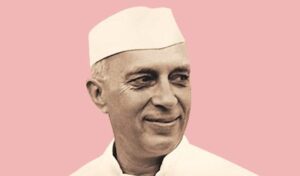
Thirty years ago, I got the chance to organize the papers of Dhanulinga Nadar, who was a Gandhian, a freedom fighter and who had a significant role in the creation of Kanyakumari district (of Tamilnadu). At that time, in a private conversation I had asked him – ‘Sir, in your knowledge, which is the most significant event in the last 75 years of Indian history?”
After pondering for a while with his head bent, contrary to anything that I had expected he would say, he replied ‘Voting by head count, young man’.
Though surprised, as he spoke further, I was amazed at the expanse into history his reply contained.
We start receiving Indian history from Rig Vedic times. We start receiving Tamil history from Sangam times. In the beginning, there were small tribal rulers. They merged with each other to form small kingdoms; some among them grew, became large empires and swallowed smaller kingdoms.
In Tamilnadu, the three empires were born. Then came the invasion of the outsiders. Throughout history, the rule of kings prevailed here. After the advent of the British, colonial rule. Through the freedom struggle led by the Congress against colonial suppression, a modern democratic government was formed here.
In the 2500 year history that we know of, never before was a common man given the right to decide his government. There was literally no connection between the people and authority. The kings ruled from their capitals in large cities. The villages were under the rule of village sabhas. Castes were ruled by their leaders and the groups representing the ruler.
The kings collected toll tax on the highways. They taxed the land through the village administration. Other than that, there was nothing that the government did in return back to the people. Villages that didn’t pay the taxes were ransacked. The wealth of the people was looted through wars. Their savings were plundered during invasion from outsiders. The people were looted by each and every kingdom repeatedly.
Most of the time, the people barely knew whose subjects they were. They didn’t know from where and how the administration was being run. But their fate was determined by those kingdoms. Throughout history, common people lived as slaves, were exploited, were killed in wars and perished in famines.
The pressure created by the democratic struggle led by the Congress against the British rule here brought modern democracy.
Through the compromise between the Congress and the British administration, in the 1920s, regional assemblies were formed and elections were held. Even in areas like Travancore which were under the rule of kings, people’s committees were formed.
But all of these elections were ones in which only the taxpayers could vote. There was no role for the common man in these elections. The first time in Indianhistory that a common man played any role in politics was during 1951-52, in the general elections here. It was in this election that the government under the leadership of Nehru, under the guidance of Gandhi brought in the system of universal adult franchise.
That is what Dhanulinga Nadar referred to as ‘Voting by headcount’. The same right to vote for the king as well as a beggar. Voting rights for women. Voting rights for the homeless. Voting rights for the tribes who never considered themselves as humankind.
In 1947, when we received the democratic right to vote, in a few European nations which were considered as the cradle of modernity, universal franchise was not in vogue. For example, it was only in 1971 that Switzerland allowed its women to vote.
It was only after this that VIPs started visiting slums with folded hands. They entered huts and witnessed how people lived within them. They realized that they had to do something for those living in the streets.
There was born the thought that the Government was bounden in duty to its people. Even today, those who are discarded as useless for anything else gain in significance around election time. A 90-year old grandmother sleeping in the verandah is carried solicitously to the election booth. In Indian history, universal adult franchise is undoubtedly a turning point.
Several countries around India received freedom around the same time as us. Burma, Pakistan, Malaysia, Sri Lanka, China and Afghanistan. But in none of these countries does complete democracy exist till today. They merely have a fake democracy or a temporary democracy. All of these states have authoritarian governments. We exist as a successful democracy in the world despite all our shortcomings.
Six years ago, when flying to Delhi, I happened to chat with a senior government official from Karnataka. Seeing me reading a Kannada novel, he introduced himself. He had served 20 years in Tamilnadu. When recounting several memories to me, he mentioned that he was disgusted at the sight of Tamil women receiving money for votes.
I was shocked for a moment. ‘What do you mean?’ I asked him. ‘Tamil women are so particular about character and propriety. Why is it that they do not feel it wrong to receive money from a stranger for something that is their basic right?’ he asked. I couldn’t answer him.
‘In Tamilnadu, during elections, I have seen womenfolk from even educated families stand in the streets asking for money to vote. I have seen mothers and wives prodding the hesitant menfolk to accept the money from within the houses. “Some random stranger giving us money?” – even this basic question of propriety doesn’t arise with them. I have been ashamed at that sight. Even in Andhra and Karnataka, money for votes does exist. But it is only the drunkards that accept them. Even they accept it abashedly, in secret. Family women would refuse’, said that official.
After that, I didn’t feel like speaking. But my arms and legs were shaking till the time we landed in Delhi. We know that what that officer said is the absolute truth. How do we permit our sisters, wives and mothers to accept the cash that some stranger proffers them with outstretched hands?
Why does it not strike us that this is a degeneration of high order?
This is selling out democracy to the highest bidder. Only when it starts occurring to us that this is a failure of our character, shall we gain the right to stand up in the eyes of our forefathers who presented us with this privilege of democracy. (2016)
Translated by Gogul
